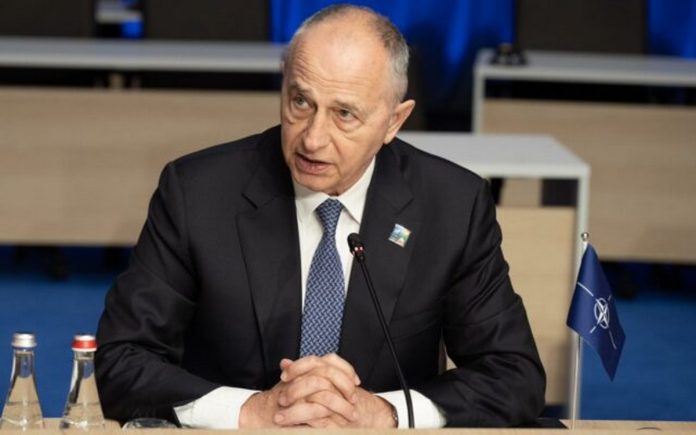At the opening of the new academic year at the Petroleum-Gas University (UPG) of Ploiesti on Monday, Deputy Secretary General of NATO Mircea Geoana menioned an entente on the protection of the environment and biodiversity, saying that he does not see any problem if Romania were to join such an alliance. In his speech, Geoana also mentioned strategies for energy transition.
„Perhaps you have seen the recent state visit of King Charles III to France. (…) At the meeting of the French president and the British sovereign, the latter suggested the renewal of the Entente Cordiale, the WWI military and political alliance between France and England, in a new entente for the protection of the environment and biodiversity. Taking into account the exceptional relations with both countries and with both leaders, I do not see any kind of problem for Romania (…)to join this entente,” said Geoana.
He went on to criticise what he called the absence of a serious debate in Romania about the country’s transition to the new economic mode. „The generalised skepticism that we all hear (…) is not related to our ability to write strategies, but to the ability, sometimes minuscule, to implement them. And that is why I am absolutely convinced that here and from here, from this great university, we will be able to start an authentic, professional conversation, with pros and cons, to be able to make Romania reach its potential and achieve its economic, political and technological objectives,” added Geoana.
He said that societies cannot suddenly switch to green energy, because the technology does not offer an easy transition for now. „The large hydrocarbon reserves have ended up redefining geopolitics and, probably for the next two to three decades, oil and natural gas will continue to be the strategic source of power, disputes, but also the well-being of nations. (…) Industries, economies, societies cannot switch suddenly to green energy, because the technology does not yet offer an easy transition.
For the next 30-40 years, humanity will look to use hydrocarbons to move, to heat, to light our homes and to live more comfortably. (…) The energy transition does not automatically mean that whole sectors of the economy are doomed to unemployment. On the contrary, with smart investment, (…) the transition to cleaner energy will generate better-paid jobs, especially for the younger generations. And here the role of university education is vital, because a university like yours has the ability to prepare young people for the challenges generated by the energy transition, which is being regulated and will continue with intensity.”




